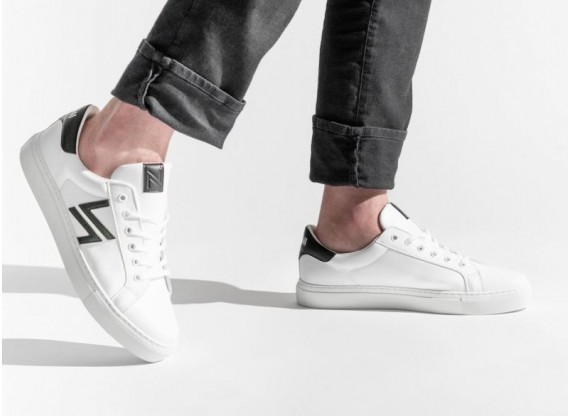
In an era where sustainability and ethical consumerism have gained significant momentum, veganism has transcended the realm of dietary preferences and is making its mark in the world of fashion. As more individuals seek cruelty-free and eco-conscious alternatives, the demand for vegan shoes and sneakers has surged. In this article, we will embark on a journey to discover the diverse style options available in the world of vegan footwear, shedding light on the innovative designs and materials that cater to both fashion-conscious and eco-conscious consumers.
The Rise of Vegan Shoes
The term “vegan shoes” has gained traction in recent years, reflecting the growing awareness of the ethical and environmental concerns associated with traditional leather footwear. Vegan shoes are made without the use of animal-derived materials, such as leather or suede, and are often crafted from innovative and sustainable alternatives. Let’s delve into the various style options within the vegan footwear spectrum:
- Casual Vegan Sneakers: Vegan sneaker are perhaps the most popular choice for those seeking a blend of comfort, style, and ethical values. Brands like Veja and Native Shoes offer an array of casual sneaker styles that utilize materials like organic cotton, recycled PET plastic, and natural rubber. These options are perfect for everyday wear and can easily complement a variety of outfits.
- Athletic Vegan Sneakers: For the fitness enthusiasts and athletes among us, vegan athletic sneakers provide the perfect combination of performance and compassion. Brands such as Adidas and Nike have embraced the vegan movement, creating athletic shoes that rival their leather counterparts in terms of performance and style. These sneakers often feature advanced materials like breathable synthetic uppers and cushioned, responsive soles.
- Vegan Boots: When it comes to cold weather or formal occasions, vegan boots are a stylish alternative. These boots are typically made from synthetic leather or faux suede and come in various designs, including ankle boots, knee-high boots, and Chelsea boots. Brands like Dr. Martens and Matt & Nat have established themselves as go-to options for vegan boot enthusiasts.
- Vegan Sandals: For the warmer months, vegan sandals offer breathability and comfort while maintaining a commitment to cruelty-free materials. Brands like Birkenstock and Teva have introduced vegan-friendly versions of their classic sandal designs, using materials like cork, microfiber, and recycled nylon webbing.
- Fashion-Forward Vegan Footwear: As veganism continues to gain prominence in the fashion world, high-end designers are joining the movement. Brands like Stella McCartney and MATT & NAT are pioneering the way with luxurious and stylish vegan shoe collections. These offerings cater to those who demand both cutting-edge fashion and ethical craftsmanship.
- Customizable Vegan Shoes: Some companies allow customers to personalize their vegan footwear, from choosing colors to adding unique details. This level of customization empowers consumers to express their individuality while staying true to their ethical values.
- Vegan Footwear Innovations: Beyond traditional materials, innovative alternatives are constantly emerging in the world of vegan footwear. Materials such as mushroom leather, pineapple leather (Piñatex), and recycled plastics are pushing the boundaries of sustainable and cruelty-free fashion.
The Environmental and Ethical Advantages
One of the primary motivations for choosing vegan shoes and sneakers is the ethical and environmental benefits they offer. By opting for vegan footwear, consumers can significantly reduce their carbon footprint and minimize the suffering of animals in the fashion industry.
- Animal Welfare: The production of traditional leather footwear often involves the use of animal hides, resulting in the suffering and exploitation of animals. Vegan shoes, on the other hand, promote animal welfare by eliminating the need for animal-derived materials.
- Sustainability: Many vegan shoe brands prioritize sustainability by using recycled materials, reducing waste, and adopting eco-friendly manufacturing processes. This commitment to sustainability aligns with the growing global consciousness about the environmental impact of consumer choices.
- Carbon Footprint: Leather production is resource-intensive and contributes to deforestation, water pollution, and greenhouse gas emissions. Vegan materials like recycled plastics and plant-based alternatives have a lower environmental footprint, making them a responsible choice for eco-conscious consumers.
Conclusion:
The world of vegan shoes and sneakers is a dynamic and evolving landscape, offering a wide range of styles and materials to cater to diverse tastes and needs. From casual sneakers to high-fashion footwear, the choices for cruelty-free and eco-conscious consumers are abundant. By embracing vegan footwear, individuals can make a meaningful contribution to animal welfare and environmental sustainability without compromising on style or quality. So, the next time you’re shopping for shoes, consider exploring the exciting world of vegan footwear options, and take a step toward a more ethical and sustainable future.


